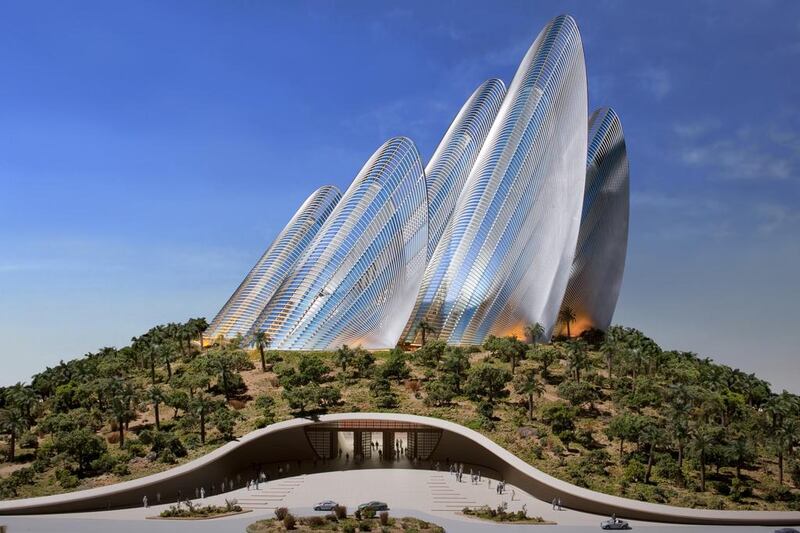Zayed National Museum, which is expected to open in Abu Dhabi’s Saadiyat Cultural District in 2016, has announced a series of free-to-attend public talks dedicated to the narrative of the museum and its development.
Titled Multaqa (forum), the series will run from January until May in Abu Dhabi city and Al Ain, and covers a variety of subjects.
Salama Al Shamsi, the museum’s project manager, says that the talks will help change the definition that people have of a museum, underscoring the mission of the Government to cement Abu Dhabi and the UAE’s position as a key player on the global stage.
The first talk, scheduled at the end of this month, will see Zaki Nusseibeh, cultural adviser to the Ministry of Presidential Affairs, and Neil MacGregor, director of the British Museum, address the subject "National Museum, National Identity".
Al Shamsi, who will act as a moderator, says the session will help to build awareness of the content and the narrative of the museum and answer questions from the public. “This talk and the ones that follow will make our plans and goals clear for everyone,” she says. “We will talk about the main themes, who is involved and the progression of the museum as we near the opening. However, we also want people to be aware of the global context and see Abu Dhabi on the world map.”
The talks will feature figures such as Sara Abdullah, one of the first Emirati female archaeologists to work for the Dubai Municipality, and Abdullah Al Reyes, the director general of the UAE’s National Archives.
Sheikh Sultan bin Tahnoon Al Nahyan, chairman of Abu Dhabi Tourism & Culture Authority, says the Zayed National Museum is a "living embodiment of Emirati identity", providing a location for UAE nationals to share their story with the rest of the world and acting as "a symbol of a proud heritage", while the Multaqa programme "marks another step towards highlighting Sheikh Zayed's milestones as well as documenting the momentous history of the United Arab Emirates".
The involvement of the community with elements such as public art commissions is really important to allow everyone to feel part of the institution’s development, says Al Shamsi.
“The community is our main target. We want Emiratis to feel they belong to this museum and to feel a sense of national pride. It is a museum for everyone to be part of. To that end, it is not only us who decides on the narrative; we have asked students, professors, historians and the people who lived, worked and travelled with Sheikh Zayed to contribute to the museum in terms of content, stories and their expectations of what they would like to see in a national museum.”
The importance of keeping the legacy of Sheikh Zayed alive should not be underestimated, adds Al Shamsi. “We have to keep his memory and his vision alive because he was the one who founded our nation and it is important for us to pass this on to the next generation. We still have memories of him but the coming generations will not, so this is a leading initiative not only for Emiratis but for the rest of the world.”
The talks
National Museum, National Identity
Manarat Al Saadiyat, January 27, 6.30-8pm
Unearthing a Rich History
Manarat Al Saadiyat, February 18, 6.30-8pm
Al Nahyan Sheikhs: Governance, Politics and Diplomacy
Qasr Al Hosn central, March 18, 6.30-8pm
The Emergence of a Great Leader
Al Ain Palace Museum, Al Ain, April 16, 6.30-8pm
The Five Year Plan
Manarat Al Saadiyat, May 20, 6.30-8pm
• For more information, visit www.saadiyatculturaldistrict.ae or call 02 657 5800
aseaman@thenational.ae





